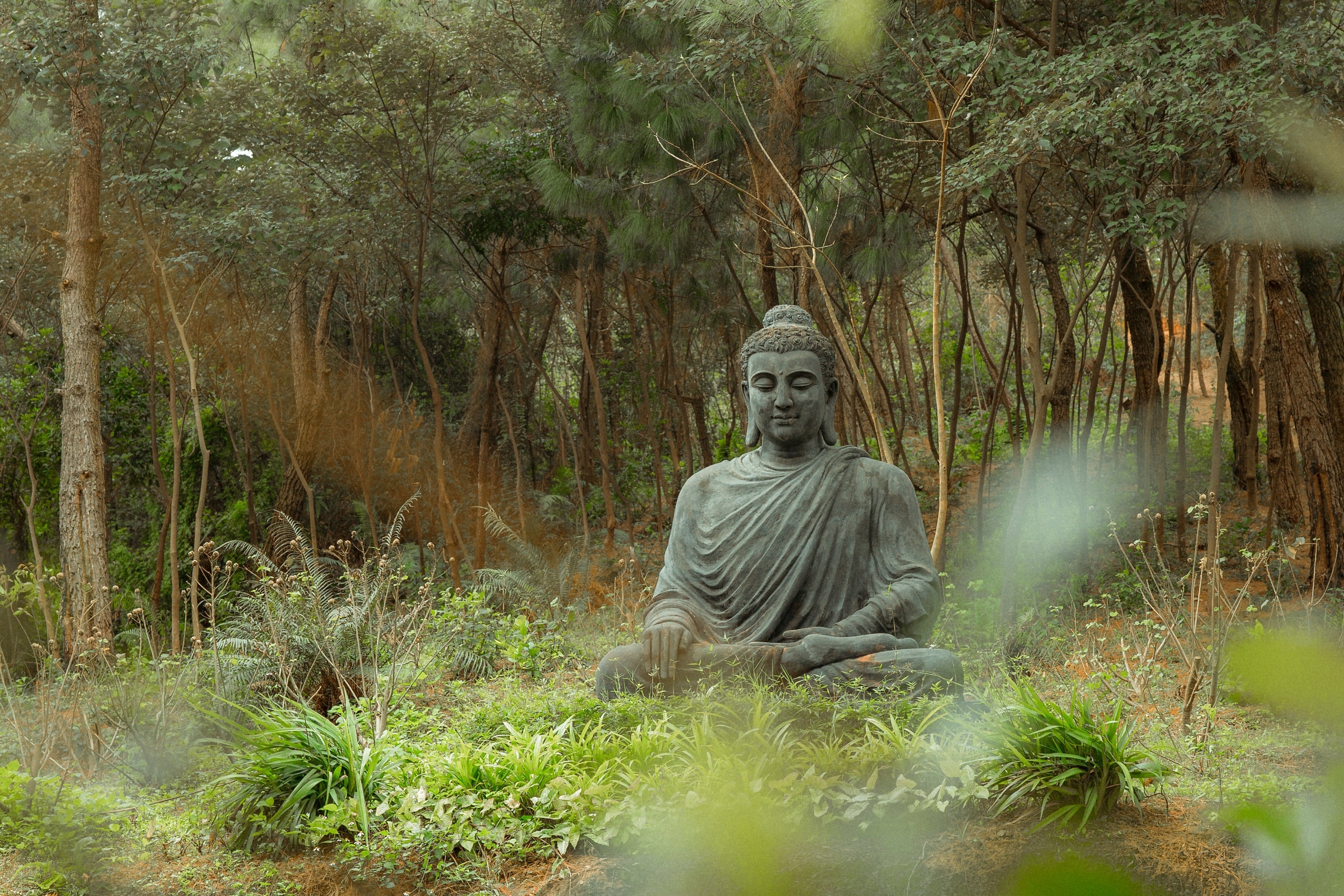The Power of One
At Prince Siddhartha’s birth, his father, the king of the realm, was told that his son would be either a powerful ruler or a great spiritual leader. Wanting his royal lineage to continue, the king did everything he could to prevent the young prince from seeing the ephemeral nature of life. This, he hoped, would keep him from seeking higher realities.
The king therefore instructed the royal charioteers never to take the prince into the city, where he would see the common lot of human suffering. To keep him further absorbed in the transitory world, the king built a beautiful pleasure palace for Siddhartha filled with lovely young maidens and youths whose company he could continually enjoy.
But the day eventually arrived when Prince Siddhartha grew restless and tired of his idyllic life. He called his charioteer and told him to drive him into the nearby city. Knowing that the king had forbidden this, the chariot driver tried to dissuade his prince from going, but Siddhartha insisted.
Into the city the golden chariot went. Here, for the first time, Siddhartha saw someone desperately ill. Shocked, the young prince demanded, “What is that?” His charioteer replied, “That is sickness, my lord.”
“Does it happen to everyone?” he asked.
“Yes, my lord,” the driver replied. Siddhartha struggled to absorb this new reality.
On they went through the city until they spotted someone old and decrepit. “What is that?” the prince asked in a trembling voice.
“That is old age, my lord.”
“Does it happen to everyone?” Siddhartha again asked in disbelief.
“Yes, my lord.” Now the prince was in a state of deep turmoil as he saw the suffering inherent in human life.
Finally they saw a funeral procession with a dead body being carried to the cremation grounds. Deeply shocked, he asked one last time, “What is that, driver?”
“That, my lord, is death.”
“Does it come to everyone?” he asked with great earnestness.
“Yes, my lord. It comes to everyone.”

So deep had been Siddhartha’s absorption in the transitory nature of the world, it seemed as though time had now stopped. The next day he left behind his kingdom, his pleasure palace, and all the comforts he had known. He was determined to find enlightenment in order to alleviate the suffering of mankind.
After years of seeking and striving, he finally achieved his goal and became the Buddha, “the Enlightened One.” On the day of his spiritual awakening, in the forests of Bodh Gaya, the unseen power of one soul uniting with God reverberated throughout the land.
Storytellers recount that in distant parts of the country a fishmonger and his wife ceased arguing; a dishonest merchant decided to treat his customers fairly; a widow lost in grief was suddenly comforted; and a ruler abandoned his plans to wage war on a neighboring kingdom. A great pulse of peace, compassion, and harmony spread across rivers, mountains, and valleys, and changed everyone it touched. That is the power of one.
The world in which we live today is rife with tension, dishonesty, power-seeking, violence, and warfare. In the face of it all, feeling helpless and hopeless as so many do, it is far too easy to fall into a pit of despair. Yet each of us has within him the power to make a difference. Here are three ways that we can release the power of one.
Expand Your Inner Peace Through Meditation⌗
Spend some time during each meditation consciously resting in inner peace. When you feel this aspect of God, concentrate on its vibration, and let peace permeate your being. Then expand it outward to touch other people and lands. Each day, try to expand the time you are absorbed in peace, and return to this awareness throughout the day. Make it your reality. Feel that you live and move in a bubble of peace, and share it with all.
Love Heroically⌗
Once, when Swami Kriyananda was asked for the best way to prepare for hard times in the world, he replied, “Learn to love heroically.” Be more aware of the needs of others, and do what you can to help them. Pray for those people and nations that are suffering. Pray especially for anyone for whom you’ve had negative feelings. Transform your heart into a fountain of unconditional love for all—whether they be good or evil, wise or foolish, friend or foe. Without any regard for such distinctions God loves all equally. We should strive to do likewise.
Whatever lies ahead, we should keep our hearts filled with love for God, and faith in Him. Trust in the thought that His loving protection is with us always. Perhaps this finds its best expression in the immortal words of the Twenty-Third Psalm:
The Lord is my shepherd; I shall not want.
He maketh me to lie down in green pastures: he leadeth me beside the still waters.
He restoreth my soul: he leadeth me in the paths ofrighteousness for his name’s sake.
Yea, though I walk through the valley of the shadow of death, I will fear no evil: for thou art with me; thy rod and thy staff they comfort me.
Thou preparest a table before me in the presence of mine enemies: thou anointest my head with oil; my cup runneth over.
Surely goodness and mercy shall follow me all the days of my life: and I will dwell in the house of the Lord forever.
When Buddha attained enlightenment, he gave us a model of how we, too, can help others through our spiritual efforts. The power of one soul can make a difference in this world of suffering. Let us unite our efforts and expand this power of one to embrace countless numbers of people everywhere. Then, the world will know true peace and harmony.
Your friend in God,
Nayaswami Devi